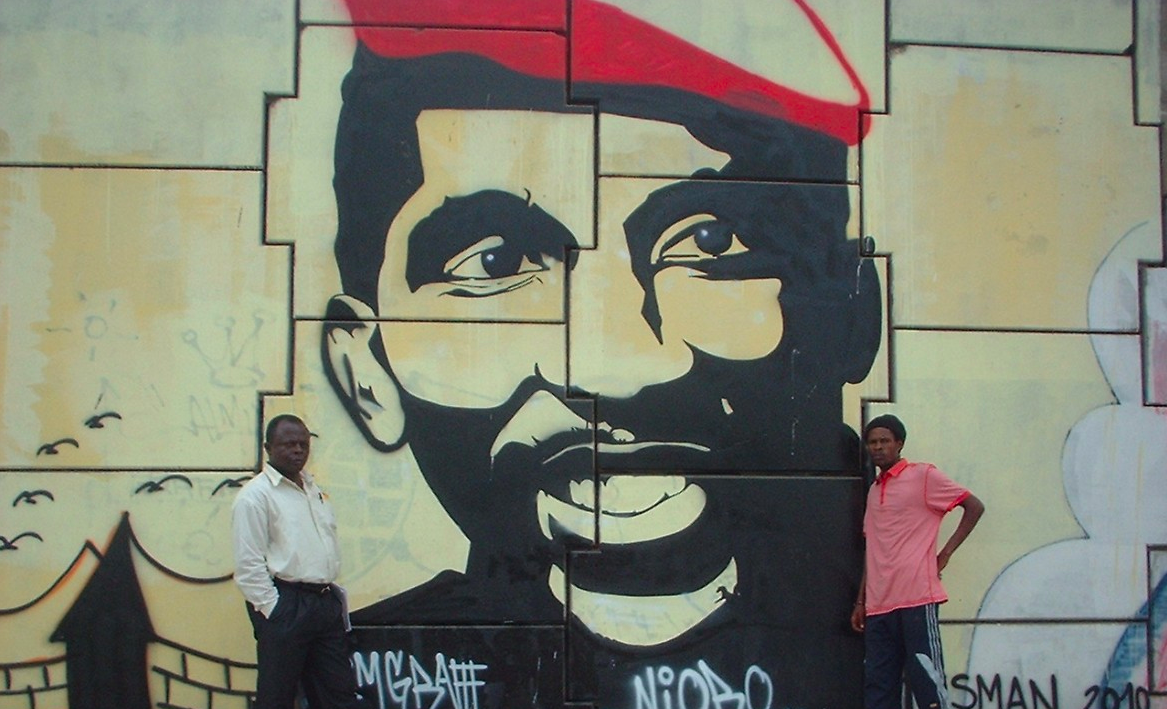Essay
The legacy of the ‘African Guevara,’ 30 years after his death
The buen vivir ante-litteram policies in the words and facts of a visionary, Burkina Faso President Thomas Sankara, killed along with his revolution three decades ago.

Slowly advancing through a thousand twists and turns, the Great Green Wall is a continent-wide forest in the shape of a giant serpent, stretching from Mauritania to Djibouti. This man-made bioregion should manage to save a good part of Africa from becoming desert, including Burkina Faso. Launched by the Community of the States of the Sahel and Sahara in 2005, Wikipedia calls it a “pioneering initiative.”
From this, one may conclude that Thomas Sankara’s speech to his “forest companions,” published in this newspaper in April 1985, shows the magnitude of the delays that have accumulated in the meantime, and proves how the time since the murder of its author, 30 years ago Sunday, has passed to almost no effect.
One can understand just how much the project, which Sankara at that time could only sketch, would have changed the world for the better by looking at how, in our times, his organic vision has come back to reflect the practices of so many movements conceived only recently, at the convergence of different approaches. It is a vision situated between bodies and territories, in the full knowledge that there will either be total liberation or no liberation at all.
Sankara’s speech talks about the environment, disarmament, women, the so-called ‘debt,’ new forms of slavery and financial colonialism, food sovereignty and culture — so much culture — most of all based on sound, and at the same time visionary.
A politics of “permaculture,” in which Marxist ethics becomes dynamic in context, “de-growth” is necessarily a “happy” occurrence, and happiness itself is a right. Everything is found before its time in Sankara (just as it was, perhaps, in only one other man: Amilcar Cabral, agronomist and poet), and he barely had four years to put his vision into action, from 1983 to 1987, when, as President of Burkina Faso, he unleashed his peaceful revolution in the “land of the people of integrity.”
He was often called the “African Guevara.” Compared to Che, Sankara might have had less experience and less trust in the power of weapons, but on the other hand, he played a mean guitar. His band was called “Tout-à-Coup Jazz,” and even though the name seems to say so (one should be wary of Wikipedia), he didn’t really play jazz.
But what concerns us here is that, while Sankara was a good guitarist, playing his part for the benefit of the whole, the singer, a certain Blaise Compaoré, was narcissistic and wicked as only singers can sometimes be. Wanting a “solo career” for himself, at a certain point he decided to have Sankara killed — and killed the music altogether.
Twenty-seven years of silence followed, and darkness, unbroken even by the lights of Fespaco, the festival of African cinema in Ouagadougou, reduced in the post-Sankara age to a sinister glow.
Today, after the popular uprising that ousted Compaoré, the civil activism of so many Burkinabè seems to be nothing but pure Sankarism. And, even as the struggles of the Mapuche in Patagonia seem to paint an even darker picture, it is truly the case that this Oct. 15 anniversary is less gloomy than the previous ones.
Originally published at https://ilmanifesto.it/piu-e-meno-di-un-guevara-africano/ on 2017-10-15
